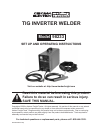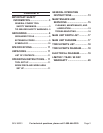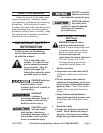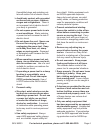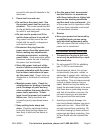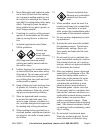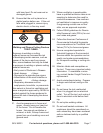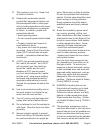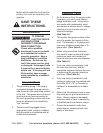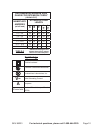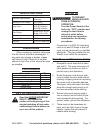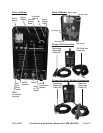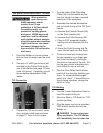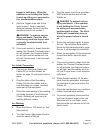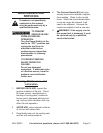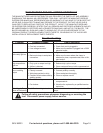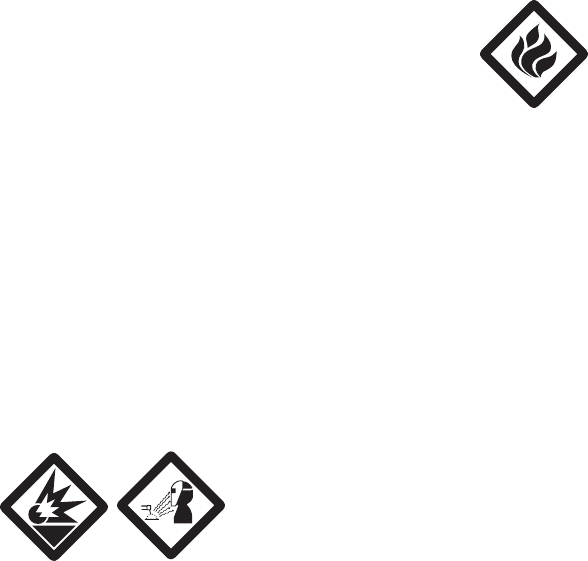
SKU 98233 For technical questions, please call 1-800-444-3353. Page 6
Move ammable and explosive mate-5.
rial at least 35 feet from the welding
arc to prevent welding sparks or mol-
ten metal from starting a re. Keep a
type ABC re extinguisher within easy
reach. Thoroughly clean the object
being welded of any paint, grease, or
other foreign material.
If working on a wall or ceiling prevent 6.
ignition of combustibles on the other
side by moving them to a safe loca-
tion.
Industrial applications must follow 7.
OSHA guidelines.
8. Prevent eye
injury and
burns. Wearing
and using
ANSI-approved personal safety
clothing and safety devices reduce
the risk for injury.
Leather leggings, re resistant shoes 9.
or boots should be worn when using
this product. Do not wear pants with
cuffs, shirts with open pockets, or
any clothing that can catch and hold
molten metal or sparks.
Keep clothing and work surfaces free 10.
of grease, oil, solvents, or any am-
mable substances. Wear dry, insulat-
ing gloves and protective clothing.
Wear an approved head covering 11.
to protect the head and neck. Use
aprons, cape, sleeves, shoulder cov-
ers, and bibs designed and approved
for welding and cut ting procedures.
When welding/cutting overhead or in 12.
conned spaces, wear ame resistant
ear plugs or ear muffs to keep sparks
out of ears.
13. Prevent accidental res.
Remove any combustible
material from the work
area.
When possible, move the work to a 14.
location well away from combustible
materials. If relocation is not pos-
sible, protect the combustibles with a
cover made of re resistant material.
Do not use near degreasing or paint-15.
ing operations.
Enclose the work area with portable 16.
re resistant screens. Protect com-
bustible walls, ceilings, oors, etc.,
from sparks and heat with re resis-
tant covers.
Do not weld or cut on materials hav-17.
ing a combustible coating or combus-
tible internal structure, as in walls or
ceilings, without an approved method
for eliminating the hazard.
After spot welding, make a thorough 18.
examination for evidence of re. Be
aware that easily-visible smoke or
ame may not be present for some
time after the re has started. Pro-
vide adequate ventilation in work
areas to prevent accumulation of
ammable gases, vapors, and dust.
Do not apply heat to a container that
has held an unknown substance or a
combustible material whose contents,
when heated, can produce am-
mable or explosive vapors. Clean
and purge containers before applying
heat. Vent closed containers, includ-
ing castings, before preheating, weld-
ing, or cutting.
Do not touch live electrical parts. 19.
Wear dry, insulating gloves. Do not
touch electrode or conductor tong



